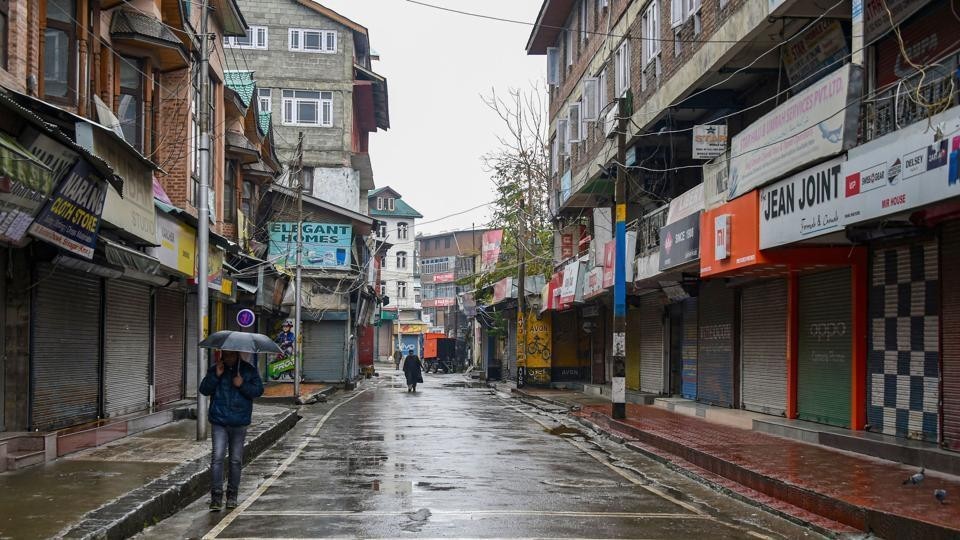Srinagar: A deserted view of a market during shutdown in Srinagar. Mobile phone, landline and internet services were disconnected in the erstwhile state of Jammu and Kashmir on August 4, a day before the Centre withdrew its special status and divided it into two Union territories (PTI File Photo )
The Supreme Court will on Friday pronounce its verdict on a bunch of petitions against the internet and communication blackout imposed in Jammu and Kashmir ahead of the nullification of Constitution’s Article 370 in August that ended the region’s special status in August.
Three former chief ministers Farooq Abdullah, Omar Abdullah and Mehbooba Mufti were also detained along with hundreds of others to prevent protests against the change in the region’s constitutional status. Most of the restrictions have since been eased but top politicians remain under detention and the internet remains largely blocked. Short messaging service on mobile phones in Kashmir and broadband internet services were restored in government-run hospitals on December 31, exactly 150 days after the government imposed the restrictions.
Mobile phone, landline and internet services were disconnected in the erstwhile state of Jammu and Kashmir on August 4, a day before the Centre withdrew its special status and divided it into two Union territories — Jammu & Kashmir. The government has gradually restored phone lines, but internet services and prepaid mobile services remain suspended.
A three-member bench of Justices NV Ramana, R Subhash Reddy, and BR Gavai will pronounce the verdict.
Kashmir Times editor Anuradha Bhasin and Congress leader Ghulam Nabi Azad were among those who had filed petitions against the restrictions.
The petitioners have argued that such blanket restrictions violate the fundamental right to speech and expression and the right to move freely under Article 19 of the Constitution.
The Centre had told the court in November that the restrictions were imposed pursuant to orders under Section 144 of the Code of Criminal Procedure (CrPC) that enables district magistrates to impose restrictions on movement and assembly in public. The Centre sought to justify the restrictions on the ground of national security.
Solicitor General Tushar Mehta told the court that misuse of social media and internet by separatists and military and political leaders of Pakistan had necessitated curbs on the internet.
While maintaining that there were no restrictions in the whole state, Mehta had underscored that tweets and trending hashtags on social media by mischievous elements justified the restrictions imposed.
He had also argued that restrictions were imposed based on intelligence inputs and in specific areas where law and order problems could be expected.
The petitioners maintained the blanket restrictions affecting a whole region cannot be imposed under Section 144 of the CrPC and can be done only by proclaiming emergency under Article 352 of the Constitution.
“Tomorrow it can happen anywhere. If there are upcoming elections, they can impose Section 144 and shut down all communication,” senior advocate Kapil Sibal appearing for Azad had told the court.
Source: Hindustan Times








Comments (0)